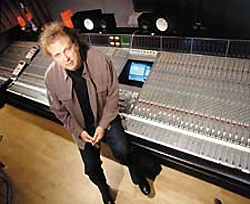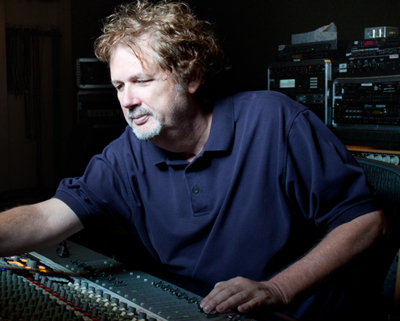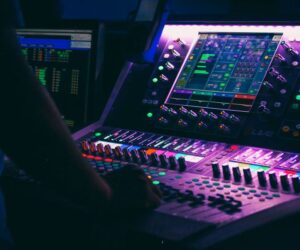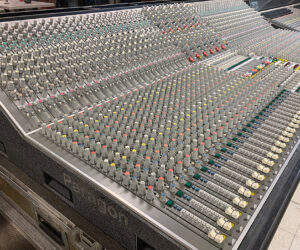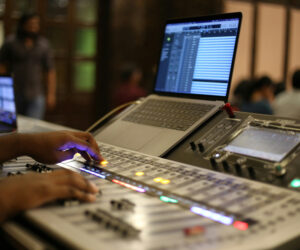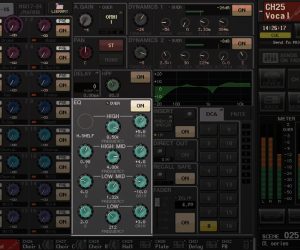Dave Pensado is a man who requires minimal introduction. He’s a world class mix engineer who’s worked on countless hit records. He’s also a teacher and mentor to an entire generation of successful mix engineers (including Jaycen Joshua, Ethan Willoughby, Ariel Chobaz and more).
Dave was kind enough to take time out of busy schedule to join us and answer some questions. Enjoy.
I went to bed at 3 am last night. When did you go to bed? What does your average week look like?
I’m still awake, I didn’t go to bed. I work about 105 hours a week, every day is 14 hours to around the clock. When I get on a roll I don’t like to stop. It’s not unusual after two weeks to slow down for a day or two though.
Let’s do the quick bio thing. Did you grow up in a musical family? Start playing early? See yourself as a mixer?
I was involved with music very early on. My mom was a gifted musician, and I learned a lot from her. I don’t know if I was particularly predisposed to mixing – really, I don’t even look at myself as a mixer, I look at myself as a guy who makes records. I just don’t participate in the entire process. I usually come in at the later part.
But I don’t separate the different categories of engineering – it’s all just the process of making the record. For me, I enjoy every part of the process, but I tend to find myself at the mixing stage. For a while I thought I’d be playing on the records. Going from playing to engineering is not that big of a step though.
A number of engineers started this way. We were broke musicians, we couldn’t hire an engineer.
Cool. Let’s talk “Pensado’s Place.” You’re making accomplished individuals very accessible. You’re exposing tons of great information. Why is it that you seem to have no qualms about revealing so many of your techniques?
It’s good to reiterate the point: I’m not selling my engineering, I’m selling my taste.
Even though Jaycen learned some engineering from me, he came to me with incredible taste. Dylan also has taste. I pick them because of their taste. They absorbed their engineering skills over time.
The unique thing is that none of my assistants sound like me. We work together so much, and I hear little things in their mixes – but they’re their own people, and should be. If we were painters, and we decided to study art at a college, one of the problems is that artists sometimes come out third rate copy of their teachers.
Some teachers grade from the perspective of what they feel is good. But it’s really about aesthetic.
This is a good time to let the readers know, if you have two hours available, the best use of your time is to listen to as many records as possible instead of just learning techniques. That time comes after immersing yourself in records you enjoy. Create a set of references.
There’s an old myth that says whenever you buy an acoustic guitar, set it in front of your speakers and play the best music you know and let the guitar absorb it, and the wood will retain that sound. Mixers need that same sort of thing. Get your own taste and then study.
It really can’t be said enough. So, where do you see the show going? It seems to be gaining popularity – it’s a fantastic show. What’s the goal?
I don’t want every Pensado’s Place episode perfect for every human – I want each one for certain things. I want each episode to have a timeless appeal – I don’t want them to be irrelevant in a year. It’s not just about mixing, but everything around the profession. One of the concepts behind the show is the question: once you make a mix, what the heck do you do with it?
I’m going to have A&Rs on the show, people on the business side. Even an art professor from UCLA because the brain has the same components; creativity is creativity, and I want different perspectives. I might have a show on successful mix engineer’s hobbies, and how those hobbies can make you a better engineer. I hope the entertainment makes it accessible to everyone, but not every episode is aimed at everyone.
I cook. Little known fact. What’s your hobby?
Photography. I use a lot of visual metaphors for mixing.

